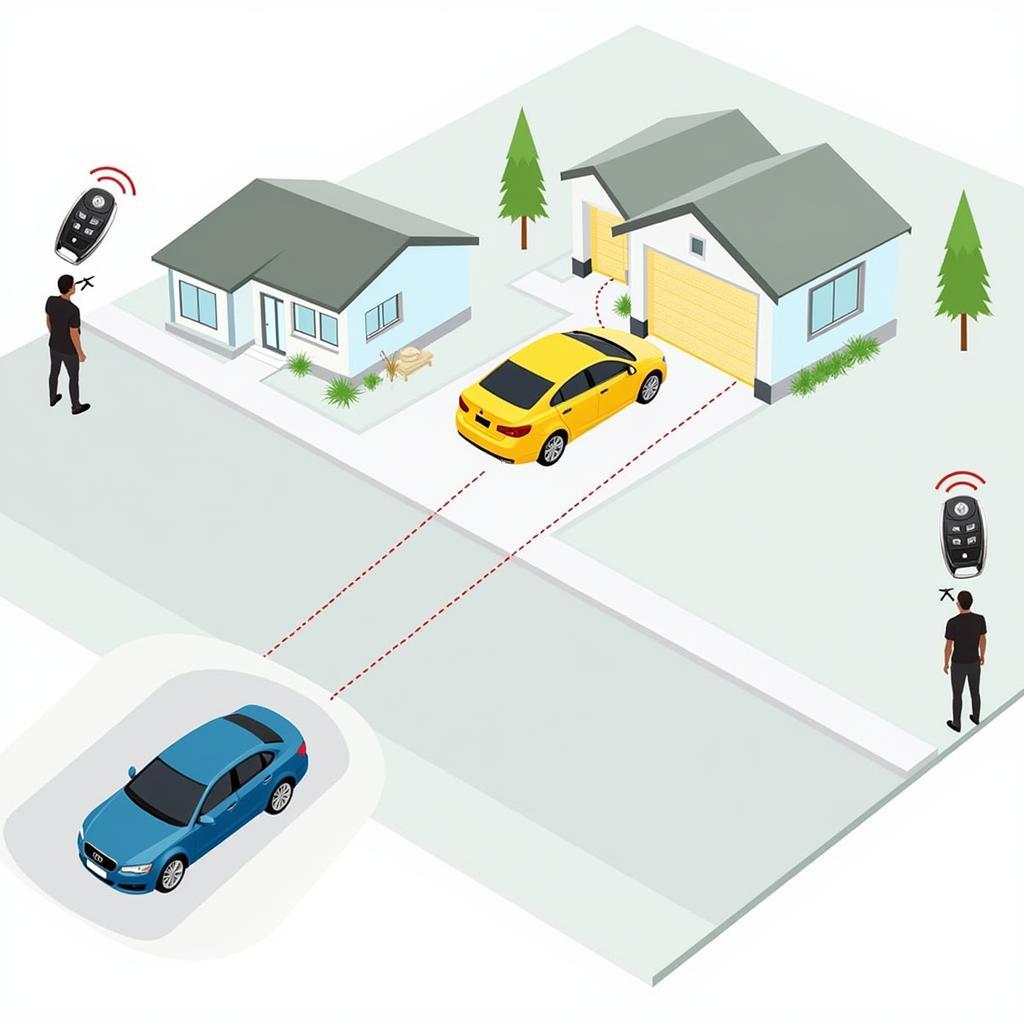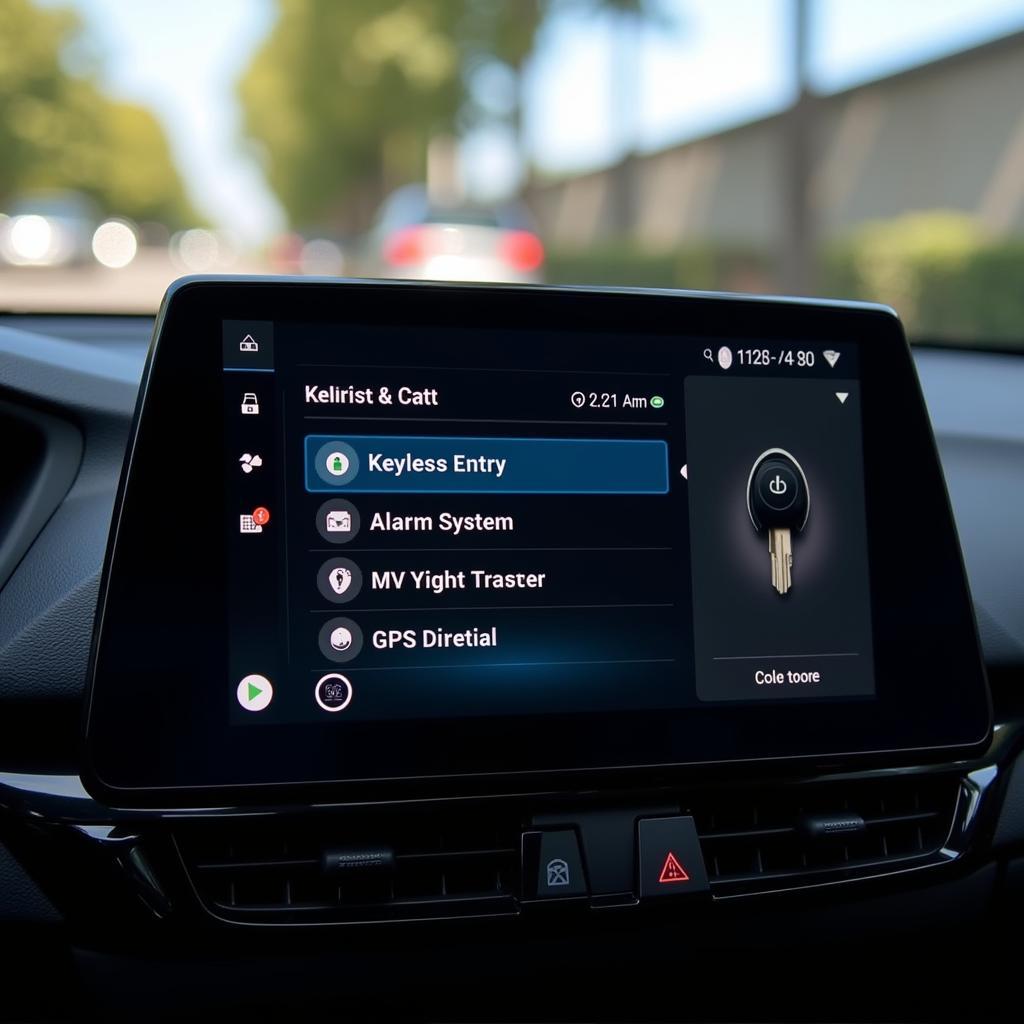How Are Thieves Cloning Key Fobs? It’s a chilling question for any car owner. Key fob cloning, a method used by tech-savvy thieves to gain unauthorized access to vehicles, has become increasingly sophisticated. This article delves into the methods thieves employ, the vulnerabilities they exploit, and the steps you can take to protect yourself. what’s key fob stand for explains the basics of key fobs and their function.
Understanding Key Fob Cloning
Key fob cloning involves duplicating the signal emitted by your key fob to unlock and start your car. Thieves utilize various methods to intercept and replicate these signals. This is often done without the owner’s knowledge, making it a particularly insidious form of theft.
Relay Attacks: A Common Tactic
One popular technique is the relay attack. This involves two thieves working in tandem. One stands near your car with a receiver, while the other lurks near your house, likely where you keep your keys, with a transmitter. The transmitter captures your key fob’s signal and relays it to the receiver near your car, tricking the vehicle into thinking the legitimate key is present. how to set a key fob can be helpful if you suspect your key fob has been compromised.
 Relay Attack Key Fob Cloning
Relay Attack Key Fob Cloning
Code Grabbing: Exploiting Vulnerabilities
Another method thieves use is code grabbing. This involves using a device to intercept the radio frequency signal transmitted by your key fob when you lock or unlock your car. The captured code is then cloned onto a blank key fob, allowing thieves access to your vehicle.
Brute Force Attacks: A Less Common, But Still Dangerous Method
While less common, brute force attacks are still a threat. This involves systematically trying different codes until the correct one is found. While time-consuming, this method can be effective against older, less secure key fobs.
How Can You Protect Yourself from Key Fob Cloning?
Protecting your car from key fob cloning requires a multi-pronged approach. Awareness and proactive measures are crucial in mitigating the risk.
Faraday Pouches: Shielding Your Signal
Faraday pouches are a simple yet effective solution. These pouches are lined with a conductive material that blocks radio waves, preventing thieves from intercepting your key fob’s signal. can cars be accessed by cloning its key fob discusses this vulnerability in more detail.
Key Fob Signal Blocking Boxes: An Alternative to Pouches
Similar to Faraday pouches, signal blocking boxes offer a larger, more convenient option for storing multiple key fobs or other electronic devices.
Software Updates: Staying Ahead of the Thieves
Keeping your car’s software updated is crucial. Manufacturers frequently release updates that patch security vulnerabilities, making it harder for thieves to exploit them. how to clone a fob key can provide insights into the techniques used and how updates help protect you.
Traditional Methods: Don’t Forget the Basics
While technology plays a significant role in car security, traditional methods like steering wheel locks can also deter thieves.
Conclusion
Key fob cloning is a real threat, but understanding how thieves operate empowers you to take preventative measures. By adopting a proactive approach, utilizing available security measures, and staying informed about the latest threats, you can significantly reduce your risk of becoming a victim. How are thieves cloning key fobs? Now you know, and you can protect yourself. is using the lock button safer than the key fob offers additional security tips.
 Car Security Technology
Car Security Technology
FAQ
- What is a relay attack?
- How can I tell if my key fob has been cloned?
- Are all Key Fobs vulnerable to cloning?
- How much does a Faraday pouch cost?
- Where can I buy a signal blocking box?
- How often should I update my car’s software?
- What are some other ways to protect my car from theft?
When you need assistance, please contact us via WhatsApp: +1(641)206-8880, Email: [email protected], or visit our office at 123 Maple Street, New York, USA 10001. We have a 24/7 customer service team ready to help.

Leave a Reply